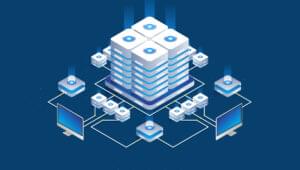Building a Digital Fortress: How to Strengthen DNS Against DDoS Attacks?

In the vast expanse of the digital universe, the Domain Name System (DNS) acts as the indispensable navigator, guiding internet traffic to its desired destination. However, this critical infrastructure is not immune to the darker elements of cyberspace. Distributed Denial of Service (DDoS) attacks, where a multitude of compromised systems attack a single target, can cripple DNS functionality, leading to widespread disruption. Building a digital fortress around DNS is not just an option; it’s a necessity for ensuring the resilience and reliability of internet services. Here’s how to strengthen DNS against DDoS attacks.
This is a sponsored article by ClouDNS. Adblockers may affect the display of this article, so please disable them for the best experience.
Understanding the Threat
DDoS attacks on DNS servers are akin to a relentless barrage aimed at overwhelming the service, rendering it inaccessible to legitimate users. Attackers use a network of hijacked computers and IoT devices to flood DNS servers with a deluge of requests, far beyond what the servers can handle. The sophistication, volume, and frequency of these attacks have significantly increased, underscoring the need for robust DNS defense measures.
The attackers’ methods are continually evolving, using more complex vectors to exploit vulnerabilities within the DNS infrastructure. This adaptability requires that organizations not only implement current defense mechanisms but also stay abreast of emerging threats and evolving attack techniques.
The Foundation of Defense: Anycast DNS
Anycast DNS is a network addressing and routing methodology that allows multiple, geographically dispersed servers to share the same IP address. When a DNS query is made, it is routed to the nearest server location in the Anycast group. This not only improves response times but also makes DDoS mitigation more effective. If one server in the Anycast group is targeted, traffic can be rerouted to other servers, maintaining service continuity.
Expanding on this, the strength of Anycast DNS in enhancing network resilience lies in its inherently distributed nature. This setup significantly complicates the efforts of attackers. Because the Anycast network distributes queries across several servers, overwhelming the DNS service becomes a much more challenging task for potential attackers. This dispersion effectively absorbs and dilutes the impact of volumetric attacks, safeguarding the availability of DNS services for legitimate users.
Furthermore, the Anycast DNS framework inherently supports DNS failover and load balancing. In the event of an outage or excessive load on one server, DNS queries are automatically redirected to the next closest server in the Anycast network. This seamless transition ensures that users will not experience any service interruption, enhancing the overall reliability of the DNS infrastructure. The dynamic rerouting capability of Anycast DNS plays a pivotal role in maintaining operational continuity, making it a critical component in the architecture of resilient internet services.
Advanced Defensive Measures
- DDoS Protection Services
DDoS protection services specialize in detecting and mitigating DDoS attacks in real-time. These services can scrub traffic, filtering out malicious packets while allowing legitimate requests through. Employing such a service can be a game-changer in defending against large-scale DDoS attacks.
- DNS Monitoring
Continuous monitoring of DNS traffic is essential for early detection of abnormal patterns that could signify a DDoS attack. This involves the use of sophisticated monitoring tools that can analyze DNS queries in real-time, identifying spikes in traffic or patterns that deviate from the norm.
- Rate Limiting
Implementing rate limiting on DNS servers can help mitigate DDoS attacks by restricting the number of requests a user can make over a specific period. This can prevent attackers from overwhelming the server with excessive requests while allowing legitimate traffic to flow uninterrupted.
The Human Element
While technology plays a critical role in defending against DDoS attacks, the human element cannot be overlooked. Training staff to recognize the signs of a DDoS attack and respond swiftly and effectively is crucial. A well-informed team can be the difference between a minor disruption and a major outage.
- Training and Awareness: Educating your team about the latest DDoS tactics and trends can prepare them to respond more effectively to incidents.
- Incident Response Planning: Having a well-defined incident response plan ensures that your team can act swiftly and efficiently to mitigate the impact of DDoS attacks when they occur.
Conclusion
In our era of digital dependence, the security of DNS is more critical than ever. Strengthening DNS against DDoS attacks is not just about protecting a single piece of the internet’s infrastructure but safeguarding the continuity and integrity of online services that businesses and consumers rely on daily. By adopting a multi-layered defense strategy that includes distributed DNS infrastructure, advanced security measures, and continuous monitoring, organizations can build a digital fortress capable of withstanding the onslaught of DDoS attacks. This proactive approach to DNS security not only ensures operational resilience but also fosters trust among users, paving the way for a safer, more reliable internet ecosystem.
Bella is a Digital Marketing Specialist at ClouDNS, passionate about creating technical content that educates and engages. She thrives on writing and learning, aiming to enrich others with valuable insights.





